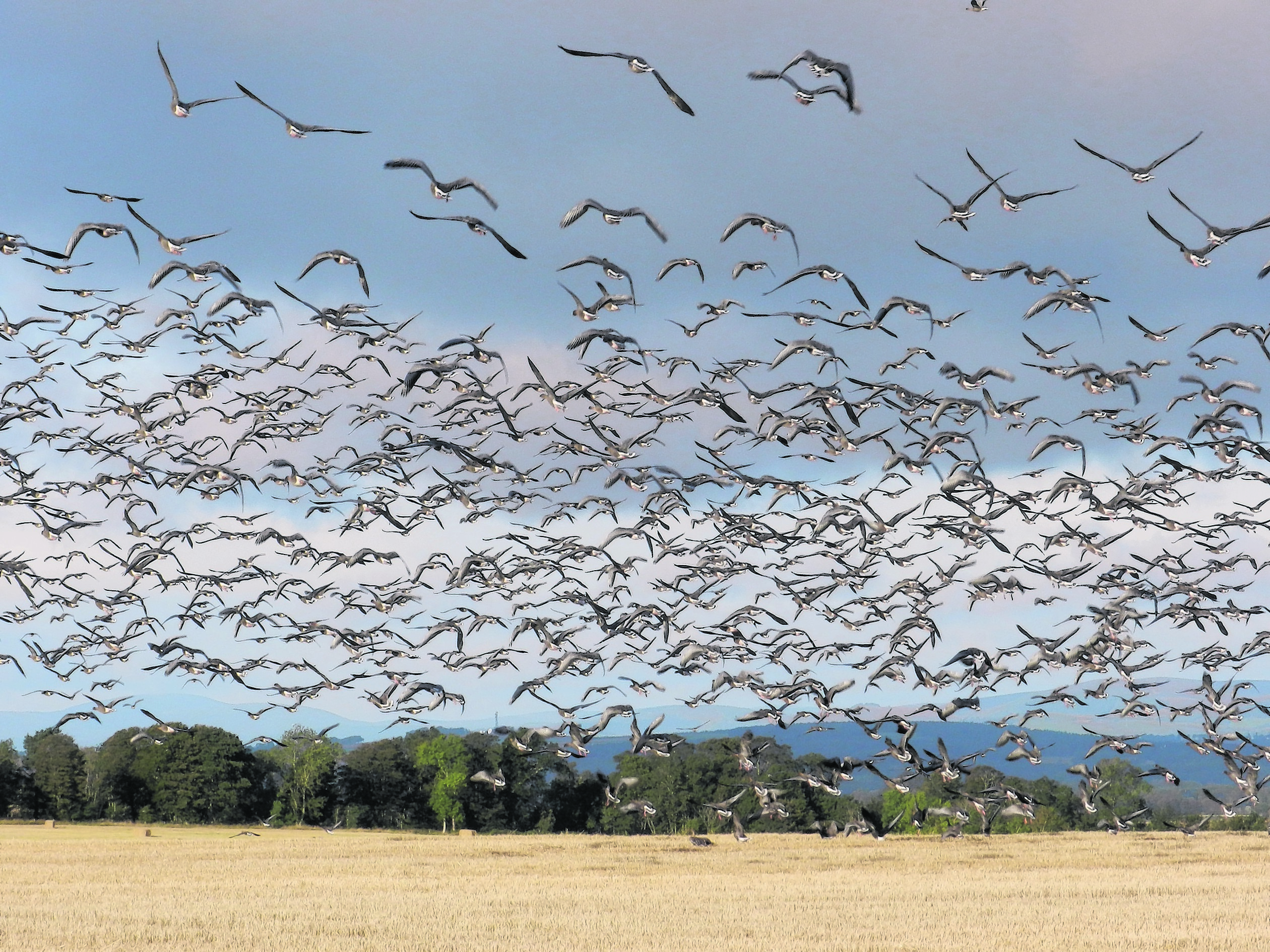A pilot scheme launched yesterday to control the goose population in parts of the Western Isles could boost the local economy by bringing the bird back on the menu.
The planned three-year shooting cull aims to reduce greylag goose numbers on Lewis and Harris by more than 2,000 and reduce damage to crops that the geese eat.
And in the process it will produce an abundance of meat for trained hunters, hotels, restaurants and cafes to sell in a bid to generate extra local income.
The once popular dish will supply a healthy, protein rich and locally sourced food for islanders.
Local butchers and retail premises will be able to obtain a licence to sell goose if they apply to Scottish Natural Heritage (SNH).
However, licenses will be restricted to Lewis and Harris and will be tightly controlled.
The initiative was prompted by a request from a local goose management group, which will manage the scheme, and is being supported by the British Association for Shooting and Conservation.
The scheme is also being guided by the National Goose Management Review Group.
Shooting started yesterday and will continue until March 31, with a further round of shooting planned for the autumn.
Similar projects are underway on Uist, Coll and Tiree, as well as Orkney.
Roddy MacMinn of SNH in Stornoway said: “It is clear that the greylag goose population on Lewis and Harris has increased significantly in recent years. Since we began an annual count in 2010 numbers have increased by more than 45%, and we now estimate the population to be in the order of 5,850 birds.
“The work will be undertaken by experienced volunteer shooters following established best practice methods, and overseen by staff within Scottish Agricultural College. Our initial target is for an additional 2,200 geese to be shot this year as we aim to deliver a significant population reduction by 2017.”
Under normal circumstances the sale of wild goose meat is prohibited, but the Scottish Government consulted with the European Commission to ensure compliance with European legislation before a decision was made.
